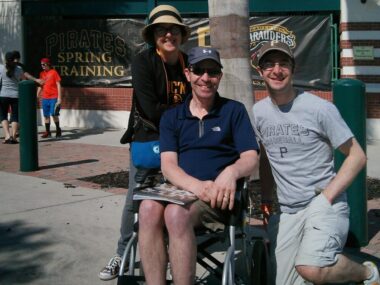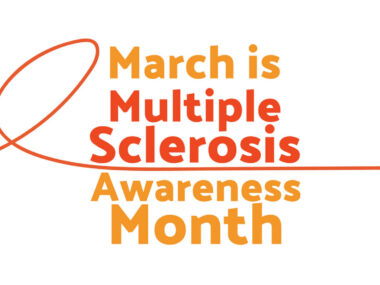Australian MS Researcher Devising Ways to Use Smartwatches as Memory Aids
Written by |
Dr. Hannah Gullo, a University of Queensland (UQ) School of Health and Rehabilitation Sciences researcher, is several steps closer to achieving her goal of using smartwatches to combat the effects of multiple sclerosis (MS), thanks to an $8,000 Ian Ballard Travel Award for 2016 that will fund her flying from Australia to the U.S. on an MS Research Australia grant.
Dr. Gullo will spend four weeks at the Kessler Foundation in New Jersey, working with Professor John DeLuca and his colleagues. Professor DeLuca is senior vice president for Research at the Kessler Foundation, and oversees the Foundation’s rehabilitation research into MS, as well as into spinal cord injury, brain injury, and stroke, and is internationally renowned for his work in memory and information processing. Dr. DeLuca currently devotes 100 percent of his time to research and training, and is studying disorders of memory and information processing in a variety of clinical populations, including MS, aneurysmal subarachnoid hemorrhage, chronic fatigue syndrome, and traumatic brain injury.
 The Kessler Foundation is a public charity working to improve the quality of life for individuals with disabilities. The Foundation bears the name of Dr. Henry H. Kessler, an orthopedist who founded the Kessler Institute for Rehabilitation in 1947 to provide comprehensive rehabilitation for people with physical disabilities and help them achieve maximum independence. Today, the Kessler Foundation continues Dr. Kessler’s legacy in the for-profit Kessler Institute, the largest and most comprehensive hospital for medical rehabilitation in New Jersey.
The Kessler Foundation is a public charity working to improve the quality of life for individuals with disabilities. The Foundation bears the name of Dr. Henry H. Kessler, an orthopedist who founded the Kessler Institute for Rehabilitation in 1947 to provide comprehensive rehabilitation for people with physical disabilities and help them achieve maximum independence. Today, the Kessler Foundation continues Dr. Kessler’s legacy in the for-profit Kessler Institute, the largest and most comprehensive hospital for medical rehabilitation in New Jersey.
“I’m conducting a trial to evaluate the application of compensatory memory techniques using smartwatch technology,” Dr. Gullo said in a UQ news release. The trial, titled “International collaboration to study cognitive remediation for MS,” is a randomized, controlled study to assess the use of compensatory memory techniques enabled by the use of smartwatches.
“Only during the past two decades have clinicians become increasingly aware of the prevalence and profound functional impact of cognitive impairment in MS,” Dr. Gullo added. “This trip will enable me to consult with international experts in the field of cognitive training to inform the next phase of the trial.”
Dr. Gullo will combine her expertise with that of Kessler Foundation researchers to develop a novel technique for training memory and thinking skills in people with MS, using both remediation and compensatory rehabilitation techniques.

“Smartwatches make it easier than ever to implement strategies to manage problems like forgetfulness,” she said. “It’s as simple as saying: ‘Remind me to buy milk at 5PM’. There’s no need to find a pen or even pull out your phone.”
Dr. Gullo also plans to use her November trip as an opportunity to analyze preliminary data from her pilot study “MINDfit for MS.”
Globally, more than 2.3 million people, including more than 23,000 in Australia, are living with MS, characterized by an attack on myelin, the fatty material that insulates nerves, resulting in disturbances in sensory, motor, visual, and cognitive functions.
 Developing a novel technique for training memory and thinking skills in people with MS is the end goal of Dr. Gullo’s research.
Developing a novel technique for training memory and thinking skills in people with MS is the end goal of Dr. Gullo’s research.
“I’m extremely thankful to MS Research Australia for the travel award plus the seeding grant from the UQ Faculty of Health and Behavioural Sciences to make this possible,” Dr. Gullo concluded.
Sources:
The University of Queensland
MS Research Australia
UQ Faculty of Health and Behavioural Sciences
The Kessler Foundation


